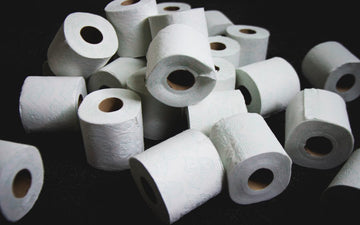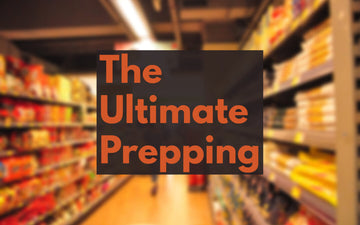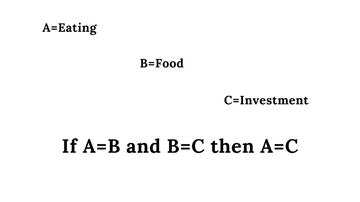There is a line. This line has seemingly been shifted by factors like where we live, the technology available to us today, and the luxuries we’ve become accustomed to, but it’s time we lock it into its proper place. This ever-distorted, ever-misplaced line is the one that divides our “needs” from our “conveniences”. As we’re doing our best to prepare for emergency situations, it’s important for us to recognize where this line truly sits and to then plan accordingly. That’s not to say you only stock the absolute necessities, but simply that we should have a realistic grasp on which side of the line things fall.
When packing for a trip, it can be very helpful to look through a lens of “What do I absolutely need on this trip?” If we’re going deer hunting our checklist of absolute needs might look like the following:
- Gun
- Ammo
- Knife
- Hunting License
- Climate appropriate clothing
Certainly, there are other things that most hunters want to have with them on a hunt, but as long as they have the five things above, they can hunt. It serves us well to think of prepping in the same fashion. What keeps us alive vs. what makes being alive more pleasant and enjoyable?
We have been fearfully and wonderfully made by a God that has given us relatively few physical needs; oxygen, clean water, food, and shelter. Barring those with certain medical conditions, most other things in life that we view as a “need” would be more accurately placed in the category of “convenience”. (Yes, even that toilet paper that people lost their minds over in 2020. It was invented in the mid-1800s, meaning that a whole lot of people had survived for many, many years without it. I’m not suggesting that it would be pleasant to do without toilet paper, but I am saying that you could do without it.) Understanding that our list of needs is relatively short allows us to see prepping as less daunting and less stressful. Sure, it would be great if we could bop through an emergency without effecting our current standard of living, but that’s pretty unlikely…so let’s first focus on covering the bases that keep us alive and then see which conveniences are most important to keep. Once we see we don’t need to stock everything we use in our life, the job of being ready feels a whole lot more manageable.
As you work through identifying what are true needs and what are conveniences, be aware that it becomes very easy to lie to yourself…but, in doing so, you’re only hurting you and those you’re prepping for. Just because something isn’t a need doesn’t mean you can’t choose to stock it, it just means you can survive if you don’t…so do yourself a favor and be strict to what is truly and absolutely necessary. Toilet paper provides a great example for a high-level window to help us understand where our line between need and convenience may lie. If something was invented in the last 100-150 years, you may struggle to argue it being a true “need”. Is something truly necessary for human life if human life was lived for thousands of years without it?
This window is a good place to start, although admittedly, it doesn’t always give us an accurate picture, so we can’t rely fully on it. As these conveniences have become prevalent, they have changed how we live and where we are able to survive. There are things that weren’t around 100 years ago that would make survival difficult today if they suddenly disappeared, i.e. a vehicle. Because most of us own a vehicle and are able to move from place to place easily, we’ve been able to expand how far away from civilization, food, or water we’re able to comfortably live. If your nearest source of water (that isn’t a grocery store) is 35 miles away, transportation may rightly fall on the need side of your line. Conveniences stop being conveniences when they’re necessary to acquire a need.
Determining the line for your situation takes serious thought and honesty. Whether you’re new to prepping or a seasoned pro, sitting down and thinking through how you will cover your core needs (oxygen, food, water, and shelter) is a valuable exercise to ensure you’re not overlooking any critical components.
- Oxygen -Most of us don’t spend much time thinking about finding oxygen. It’s just always there. But, it’s not at all uncommon to find gas masks in a preppers stock for when oxygen is no longer clean and prevalent. If an event takes clean oxygen away from you, how are you going to deal with that?
- Food – You should have a large enough stock to feed yourself and your loved ones for a significant period of time. (This can be a huge headache and difficult to afford, which is why we’re here). But what if you aren’t well prepared? What if you’re you only stocked for 3-days and you’re staring down the barrel of a 6-week event? How are you going to provide the sustenance needed? Where can you acquire your food? What tools will you need to harvest it?
- Water – Water tends to be the most difficult variable to prep for due to its bulkiness and weight. Whether you’re stocking in individual bottles, gallon jugs, or 50-gallon barrels, enough water to last a family for a significant portion of time is going to be a hassle. You will need a source of water that you can make potable. Where will you get it? How will you transport it? What will you need to collect and move it? How will you clean it?
- Shelter – Other than a lack of oxygen, a lack of shelter has the potential to take you out of the game fastest. Without proper shelter, the extreme cold of a northern winter can end a life in a matter of hours. The extreme heat of a southern summer can do the same. If your home is no longer a viable shelter, where do you go? Do you need to build something? What tools and materials will you need for that? How do you control climate to within a livable range?
In terms of determining needs vs. conveniences, planning for each of the four core needs allows us to see which of the things that may seem like a “nice thing to have” are actually an absolute necessity. Think of it like a three-layered circle. The inner rung is our core needs, the middle rung are the “conveniences” we must have in order to provide the core needs, and the outer rung are the legitimate conveniences.
Now, understanding that our physical needs are covered by relatively few things, it’s important to note that your mental health is also critically important. If you’re struggling mentally, or check out altogether, it’s only a matter of time before you’re done physically as well. If you’re constantly hungry, thirsty, bored, uncomfortable, or severely unhappy for whatever reason (or dealing with family members who are) there are going to be critical things that aren’t taken care of. Some conveniences may also find themselves shifting to the needs side of the line simply due to keeping you and your loved ones mentally healthy. We will go more into depth on this in another blog, but as you work through these needs vs. convenience planning stages, keep in mind that there will be some things that we stock just for the sake of mental health, and that’s okay.
Prepping takes work. It takes investment, both in time and money. It’s doing things now that others aren’t so that, when emergencies come, you’re not reliant on the government to rescue and sustain you. But, it doesn’t have to be nearly as daunting, stressful, or scary as many tend to make it. Understand what you truly need in an emergency situation and make sure you’ve got those bases covered. Anything beyond that is a convenience that you can live without if you must.





